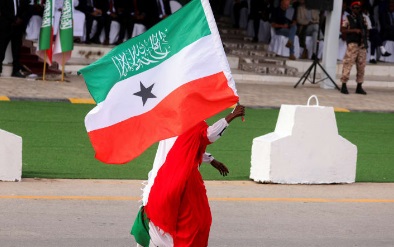 Hadhwanaag
Hadhwanaag
This week, Somaliland
stands at a significant crossroads as it prepares for its presidential election
on Wednesday. This event marks the 7th election since the country embraced
universal suffrage 21 years ago. Since that landmark decision, Somaliland has held
a series of local, parliamentary, and presidential elections, all conducted
peacefully, earning admiration both domestically and internationally.
Somaliland has
maintained a tradition of peaceful and representative elections, which stands
in stark contrast to the turbulent electoral histories of many other regions.
This legacy of democratic stability serves as a beacon of hope for the nation,
reflecting the people's desire for a participatory governance system that
allows them to shape their future.
The upcoming election
is expected to be no different, with the people of Somaliland seeing it as an
opportunity to affect change. Whether driven by patriotism or more localized
clan interests, the electorate is united by the desire to use their votes to improve
their lives. Elections here are not just about selecting leaders; they are
about granting citizens dignity, enabling them to steer their country's
destiny, and providing leaders with a legitimate mandate to govern.
However, Somaliland's
electoral process is not without its challenges. Weak institutions,
particularly in the judiciary, national electoral commission, and parliament,
have sometimes failed to provide the necessary checks on executive power. This
has led to delayed elections, extended terms for elected officials, political
infighting, public polarization, and growing distrust in government proposals.
This presidential
election could be particularly consequential. If conducted freely and fairly,
it holds the promise of healing national wounds, renewing faith in democratic
processes, and advancing development. The nation is still reeling from the
conflict in the Sool region last year, which severely impacted national
cohesion. The societal divides that have widened since the 2017 presidential elections
only add to the urgency of a transparent electoral process.
The responsibility for
ensuring a fair election largely falls on the principal contenders—President
Muse Bihi of the Kulmiye party and his challenger, Abdirahman Mohamed Abdillahi
of the WADDANI party. While both candidates share the duty to uphold election
integrity, President Bihi, as the incumbent, carries greater constitutional
authority over national security.
His recent remarks,
particularly his reconciliatory address to the nation, contrast sharply with
his earlier contentious comments on BBC Somali section interview, in which he
said in Somali "marka aad ogaato in garta lagaa helayo, cuyub baa loo rogaa”- which roughly means: when you
learn that you are losing the argument you twist the issue”. The comment raised eyebrows and some interpreted
it as his possible intentions should he face defeat.
Many hope that
President Bihi will avoid the pitfalls of contentious election, mindful of his
political legacy already marred by the impact of last year's unfortunate war in
Sool. The stakes are high, and the choice between two potential futures rests
largely with the candidates' actions in the coming days.
As Somaliland
approaches this pivotal moment, optimism abounds that the nation will once
again, demonstrate its commitment to peaceful and democratic principles.
Therein lies the hope that, regardless of the outcome, the election will
reinforce Somaliland's standing as an exemplar of democracy in the region.
Hadhwanaagnews marnaba masuul kama aha Aragtida dadka kale. Qoraaga ayaa xumaanteeda, xushmadeeda iyo xilkeeda sida. waxa kaliya oo Hadhwanaagmedia dhiirigalinaysaa, isdhaafsiga aragtida, canaanta gacaliyo talo wadaagga!